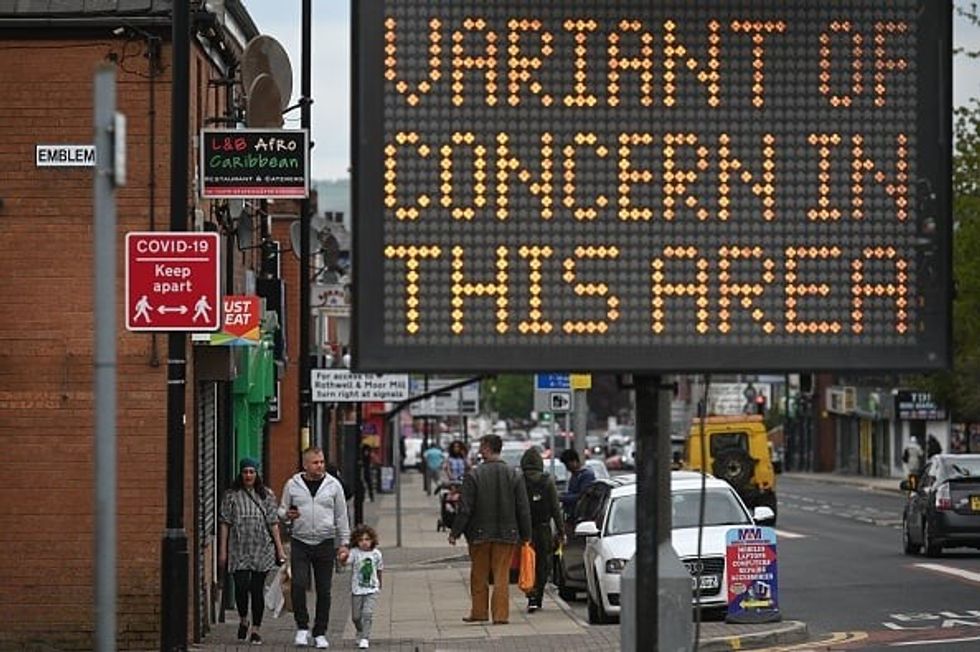SCIENTISTS have urged the UK government to speed up the second Covid jab and delay the June 21 reopening as cases of Indian variant, now known as Delta variant, continue to rise in the country, sparking fears of a third wave.
British Medical Association council chairman Dr Chaand Nagpaul recently urged the UK government to “act with maximum caution when considering whether to go ahead with lifting restrictions on June 21” as “we cannot afford to repeat past mistakes."
Calling on prime minister Boris Johnson to honour his pledge to lift measures based on “data, not dates,” Dr Nagpaul warned that a “premature” ending of all legal restrictions may result in a surge of infections that “would undermine our health service” and undo all the progress made so far to suppress Covid-19.
Seeing the rise in the more transmissible Indian variant in the country, many experts have also called for the gap between the first and second Covid jabs to be reduced to eight weeks for all adults. Efforts to get the first dose to all the adults have already been ramped up, particularly in areas with high levels of the Delta variant.

Prof Lawrence Young, a virologist at the University of Warwick, said it is necessary to accelerate second doses more widely.
“The importance of full vaccination is now becoming even more obvious with real-world data showing how it protects from infection and spread of the Indian variant,” he told The Guardian, adding that everything needs to be done “to speed up vaccination, particularly second shots.”
Despite the vaccination programme, scientists believe that the rise in the Delta variant may lead to a rise in hospitalisations and deaths, therefore, full easing of restrictions in England in three weeks’ time should be reconsidered.
The Royal College of Nursing has also urged caution on the June 21 reopening saying that “now is the time to take cautious steps and not take an unchecked leap to freedom."
"Taking the right steps now will prevent this from becoming a wave that could threaten the recovery we have all worked so hard to deliver,” said chief executive Pat Cullen.
Britain now has almost 8,000 cases of the B.1.617.2 variant, with areas such as Bolton, Blackburn, Bedford, Chelmsford and Canterbury seeing a rise in the numbers. The Delta variant was first detected in India and is said to be one of the reasons behind its ongoing deadly second wave.

















 Damian Talbot
Damian Talbot
 Nirmala Sitharaman speaks at the India-UK Investor Roundtable in London last Wednesday (9). On the panel were India’s department of economic affairs secretary Ajay Seth and Kotak Mahindra Bank founder Uday Kotak
Nirmala Sitharaman speaks at the India-UK Investor Roundtable in London last Wednesday (9). On the panel were India’s department of economic affairs secretary Ajay Seth and Kotak Mahindra Bank founder Uday Kotak Sitharaman with Sir Keir Starmer and Rachel Reeves
Sitharaman with Sir Keir Starmer and Rachel Reeves Sitharaman with Jonathan Reynolds
Sitharaman with Jonathan Reynolds  Sitharaman with Reynolds, Alastair King, India’s high commissioner Vikram Doraiswami and other delegates
Sitharaman with Reynolds, Alastair King, India’s high commissioner Vikram Doraiswami and other delegates